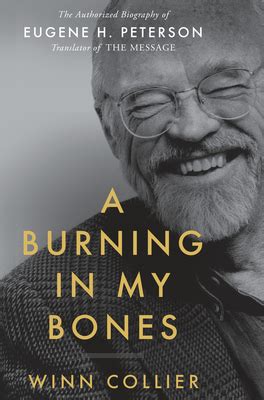I’m back.
Have you missed me?
I’m getting to the last half of the humor series I started a few weeks back! (see the bottom of the page for the other entires)!
Today I am exploring sarcasm.
(part 1)
This took a lot of research because I had so little understanding of sarcasm and I’ve heard it so infrequently.
That was like stretching before a jog.
You limber and ready? Let’s do this!
We take humorous sarcasm for granted because it’s so plentiful in the modern culture milieu. This is, in fact, a recent cultural development, and one the entertainment industry has much to be thankful for.
Sarcasm is actually a rather complex use of a language:
In using sarcasm we must convey the opposite of what we are saying.
This happens best by using enough vocal intonations, body language, and other hints to communicate true intent. (The less exaggeration done, the more of a butt hole you seem.)
Sidenote:
For those with language or cognitive impairments, like autism, sarcasm may be routinely misunderstood. My son’s–who has autism and learning disabilities–now has a budding understanding of sarcasm at age 14. My daughter caught on at age 3. By using more exaggeration to convey the real meaning in my use of sarcasm, I introduced him to a common use of communication. I know you’re thinking… “PARENT OF THE YEAR!”…but, yes, this was not without its problems.
His accomplishment was a milestone of development that will start to serve him well if he expects to be treated as a mainstreamed person. Nevertheless, the use of sarcastic comments in our home tends to be unnoticed by him and taken in lateral, face-value terms. We try to keep a reign on it in our home to avoid needless problems of miscommunication.
This was, at first, a bitter disappointment to me, having come from a caustic childhood environment where sarcastic mockery was more plentiful than supper leftovers. Alas, it was a call to greater maturity as well as development of alternative modes of mirth-making. For me, baby steps.
6 Things to note about the use of sarcasm:
1. Unlike many other expressions of humor, sarcasm always has a point and means to activate or thwart something. It also proves useless (or frustrating) if the hearer fails to understand the actual pointed meaning. Tip: That’s how to foil it. Just act oblivious. Easy-peasy.
2. Invariably, It is used to point out the supposed superiority of one person (or group) over another.
That’s, right…..Busted!
3. It is considered genuinely humorous only when one can duly side with the practitioner of it, and not be the object of the sarcasm/ridicule. The rare exception being when the practitioner has the master skills to appear convincingly benign to everyone involved–which few do convincingly. Groans, eye rolling, harbored resentment, passive aggression, or revenge plots indicate failure on this part.
4. The word sarcasm comes to us from the mid 16th century in the French word sarcasme. Isn’t it hard to believe that of all people and language groups on the planet that it would be the French at the source of the word?
I wonder what the source of the the word “snooty” is….
(Find out and let me know!)
Right now, I feel I should point out that “DeLay” is my married name.
The French word sarcasme was originally from late Latin, from late Greek sarkasmos. In Greek, it is sarkazein and means to ‘tear flesh,’ (lovely!). In late Greek it meant ‘gnash the teeth, speak bitterly’ (think: sneer). And like the languages from whence it came, sarcasm is often noted to be too little, too late and, of course, carnivorous.
5. The frequent use of sarcasm creates a negative, cynical, and often toxic atmosphere and state of mind. And it’s just plain old douchey (pardon my French).
6. In the classical (Greek) world, “humor” was primarily conducted as sarcasm and practiced by the upper class (who were few) to degrade and condescend the lower, poorer classes (who were many). I’m assuming that in contrast, the poorer classes, as is typical, found burping, farts, and shit jokes funny (pardon my French).
This class issue is why the use of humor was denounced by Plato and other early philosophers (who were–mind you–literate, educated, and upper class. They saw it as counter-productive and without virtue. The noble, high class aim is to be good. And of course, farting was not at all funny to Plato, ever. Not once.)
In the Republic (388e), Plato says that the guardians of the state should avoid laughter, “for ordinarily when one abandons himself to violent laughter, his condition provokes a violent reaction.”
I’m not sure if he meant riots or just getting punched in the eye.
And now, I will leave you with this story…
A linguists professor instructs his class saying,
“Sarcasm is a poor use of language, crass and unsophisticated, and serves absolutely no sensible point.”
To which a student in the back replies, “Yeah, right!”
Sarcasm is, most often, poison humor meant to somehow injure or to thwart.
It works like a kind of tool and inflicts a kind of violence. As with all weapons, prudence and moderation will be the best course…in case all of this is getting past you. ;)
It goes without saying that, sometimes, violence is the point, so then it boils down to determining what kind of person you want to be most of the time.
Your assignment is to write something sarcastic in the comments section to prove you understood this post, or instead… if your conscious is lashing you, count and report the number of times sarcasm was used in the post.
Sarcasm tends to be misunderstood in written form. This includes, letters, emails, texts, and sky writing. The internet is replete with sarcasm misunderstood….so in
PART 2 I’ll go over how the Secret Service is considering using software to detect sarcasm online. Crazy but true.
PREVIOUS ARTICLES IN THE SERIES:
1. The primacy of humor
2. Step 1: Tickle Rats (the science and study of humor)
3. It’s not just timing, it’s specific knowledge
4. On how subversive humor works
Thanks for sharing this article and website with others!
For the latest info on my humor related projects sign up here.
 Winn Collier has written “A Burning in my Bones” the authorized biography of Pastor Eugene Peterson, who is the man probably best known for creating The Message translation of the Bible. In my conversation with Winn, we meaningfully discuss the man, Eugene, and some key ways that made him who he was. We can’t do more than scratch the surface of all that’s covered in this remarkable book, but we touch some important pieces, some of the impetus and process of this enormous four-year authorized biography project, and how Peterson and his family uniquely touched Winn’s life. Enjoy and share!
Winn Collier has written “A Burning in my Bones” the authorized biography of Pastor Eugene Peterson, who is the man probably best known for creating The Message translation of the Bible. In my conversation with Winn, we meaningfully discuss the man, Eugene, and some key ways that made him who he was. We can’t do more than scratch the surface of all that’s covered in this remarkable book, but we touch some important pieces, some of the impetus and process of this enormous four-year authorized biography project, and how Peterson and his family uniquely touched Winn’s life. Enjoy and share!
 Get my book “The Wild Land Within” here: tiny.cc/wildland (Amazon affiliate link)
Get my book “The Wild Land Within” here: tiny.cc/wildland (Amazon affiliate link)











